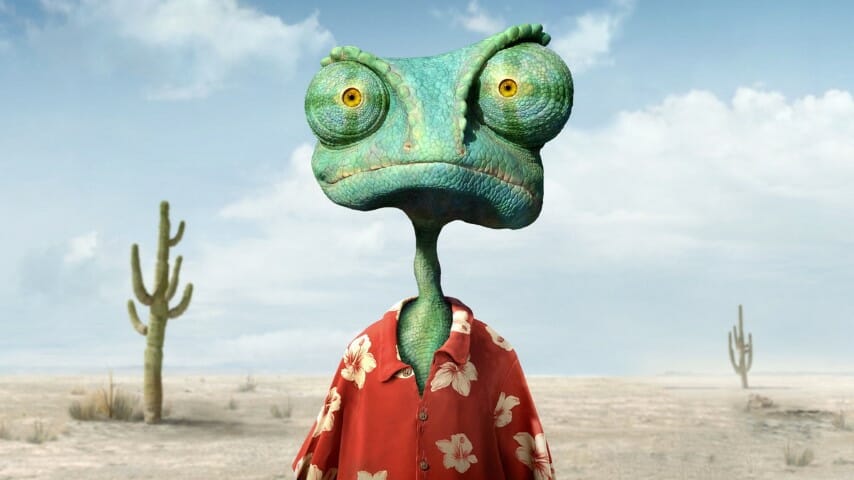Rango Is 10: A Stunning Animated Feature, and a Superb Western
Photos via Paramount
In the last 16 years, only two films produced by companies other than Disney/Pixar have won the Academy Award for Best Animated Feature. One of them was 2018’s much-loved Spider-Man: Into the Spider-Verse. The other? The epic lizard western known to discerning film geeks as Rango. It was a rare achievement, but a greatly deserved one for a film that still doesn’t often receive the esteem it deserves a decade later. Rango was the rarest of entities: An adult-oriented film cloaked in the guise of “kids movie” because of its animated nature, packed to the brim with loving references to the history of cinema and supported by a cast of veteran character actors rather than Hollywood A-listers. It’s one of the best pure animated movies of the last two decades, but it’s also more than that, being a legitimately great Western as well. From top to bottom, it’s impeccable.
A casual glance back through the last two decades of animated features quickly illustrates what an anomaly Rango truly is, especially when it comes to casting. Since the end of the Disney Renaissance it has been common, accepted practice to fill family friendly feature-length animated movies with as many A-list names as possible, whether or not those voices were particularly suited for their roles, with everything else on screen as an afterthought. Movie stars are how Hollywood has been selling animated features for more than two decades at this point, exemplified by films like Sing or Trolls where the big names on the marquee are meant to be the sole reason for admission. Rango, by way of comparison, certainly sold itself around the presence of Johnny Depp as the title character, especially coming off the epic profitability of the first three Pirates of the Caribbean entries, but it then fills out the rest of the cast with a murderer’s row of great character actors: Alfred Molina, Harry Dean Stanton, Ned Beatty, Bill Nighy, Ray Winstone, Stephen Root, Ian Abercrombie and more. The star power of Depp (who is also perfectly cast) is used to sell the film, but everyone else brings it to life. They all make each other better.
-

-

-

-

-

-

-

-

-

-

-

-

-

-

-

-

-

-

-

-

-

-

-

-

-

-

-

-

-

-

-

-

-

-

-

-

-

-

-

-

 This is now how you draw a rabbit character in a kids movie, folks.
This is now how you draw a rabbit character in a kids movie, folks. Separated at birth.
Separated at birth.






































